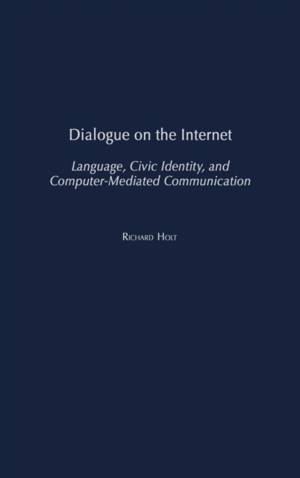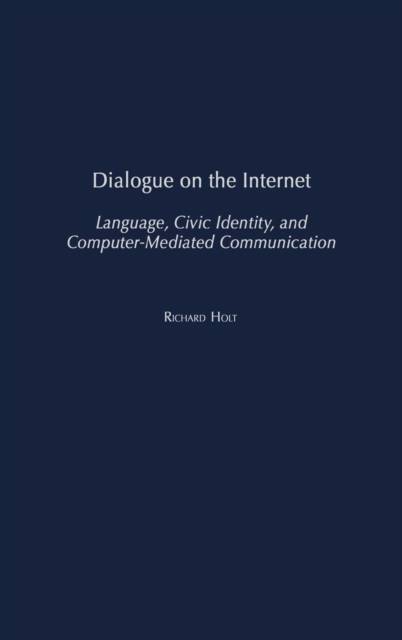
- Retrait gratuit dans votre magasin Club
- 7.000.000 titres dans notre catalogue
- Payer en toute sécurité
- Toujours un magasin près de chez vous
- Retrait gratuit dans votre magasin Club
- 7.000.0000 titres dans notre catalogue
- Payer en toute sécurité
- Toujours un magasin près de chez vous
Description
Richard Holt draws on his extensive experience in discourse analysis and Web design to present a picture of the Internet as a potentially powerful tool of civic discourse in the third millennium. Beginning with background on two of the Internet's most prevalent communication forms, email discussion messages and Web pages/sites, the book introduces the concepts of monologism and dialogism. Holt advocates a method of discursive analysis called dual reading, in which Internet utterance is analyzed first monologically and then, dialogically. This method is demonstrated by analyzing email discussions that deal with such varied topics as media, espionage, sexual identity, presidential politics, hate speech, and hate crimes.
This volume contains a multidisciplinary approach, involving a wide range of specializations, from computer science to philosophy. It will appeal to students, teachers, practitioners, and lay readers who are interested in Internet communication, politics, and popular culture. In contrast to many of the doom and gloom accounts of the deficiencies of the Internet, it offers a hopeful vision of the Internet as a means of civic discourse.Spécifications
Parties prenantes
- Auteur(s) :
- Editeur:
Contenu
- Nombre de pages :
- 272
- Langue:
- Anglais
- Collection :
Caractéristiques
- EAN:
- 9781567506792
- Date de parution :
- 30-07-04
- Format:
- Livre relié
- Format numérique:
- Genaaid
- Dimensions :
- 156 mm x 234 mm
- Poids :
- 553 g

Les avis
Nous publions uniquement les avis qui respectent les conditions requises. Consultez nos conditions pour les avis.






